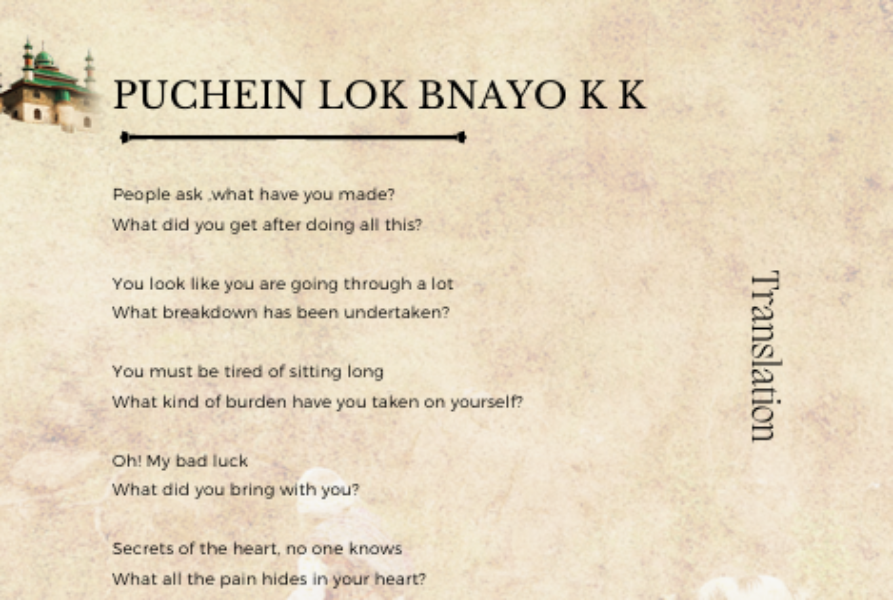
Themes
tribal languages and literature
PUCHEIN LOK BNAYO K K , jammu & kashmir
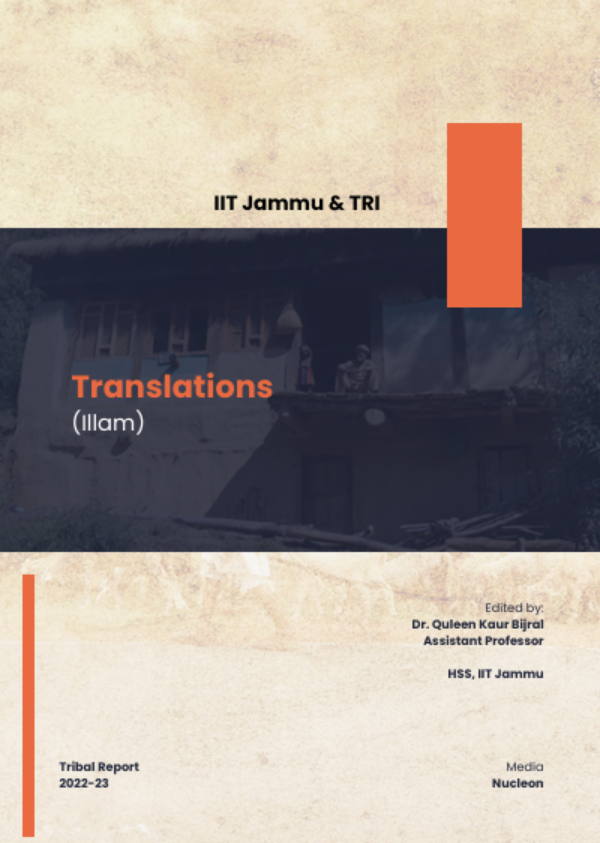
Illam is a renowned poet who can capture themes of emotional fragility, societal expectations, and repressed agony in his work. His poems are usually a criticism of society's values and what it deems important, and he stresses the individual cost of success and achievement. In "Puchein Lok Bnayo K K," Illam explores the universal human condition of bearing invisible weights and the isolation that comes from being misunderstood by others when internal conflict occurs. His poetry challenges the reader to respond to life with compassion and empathy.
“Puchein Lok Bnayo K K” is written in free verse, allowing Illam to directly convey the speaker’s emotions and concerns without the constraints of a structured rhyme scheme. This open-ended format enables a fluid exploration of the speaker’s introspection and highlights the contrast between societal expectations and personal pain. The informal, conversational tone makes the poem relatable, as though the speaker is confiding in the reader about the inner turmoil that remains unaddressed by society.

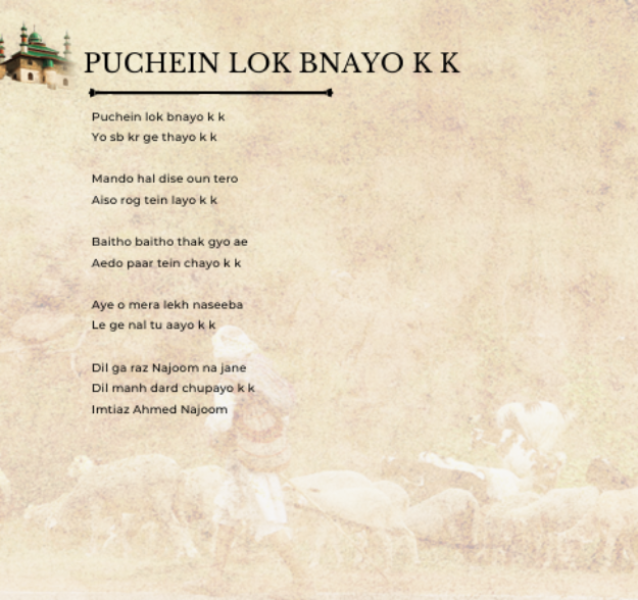
The poem lacks a uniform rhyme scheme, which reflects the unpredictable and multifaceted nature of human feelings. The lack of rhyme corresponds to the speaker's sense of disorientation and exhaustion. The absence of structure highlights the poem's messages of unrealized expectation and internal conflict, permitting the poet to convey a message of confusion and discontent that is understood by readers.
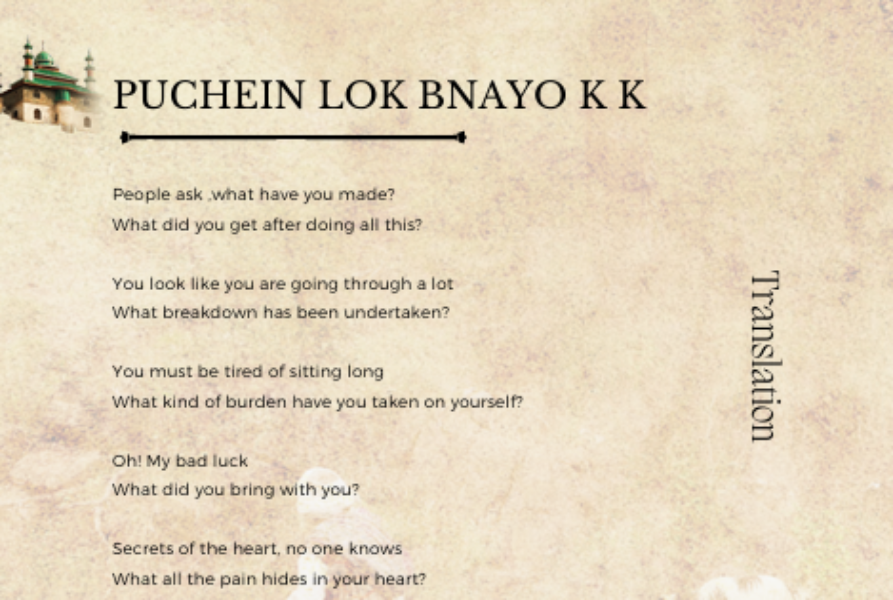
The tone of "Puchein Lok Bnayo K K" is melancholic and introspective, with the subject matter focusing on societal expectation, concealed pain, and unseen emotional burden. The narrator questions the merit of external success, frustrated by the bodily and emotional price paid in performing for others' expectation. Illam points to the disparity between societal view of achievement and the personal cost it expects, highlighting empathy towards individuals who may be silently enduring.
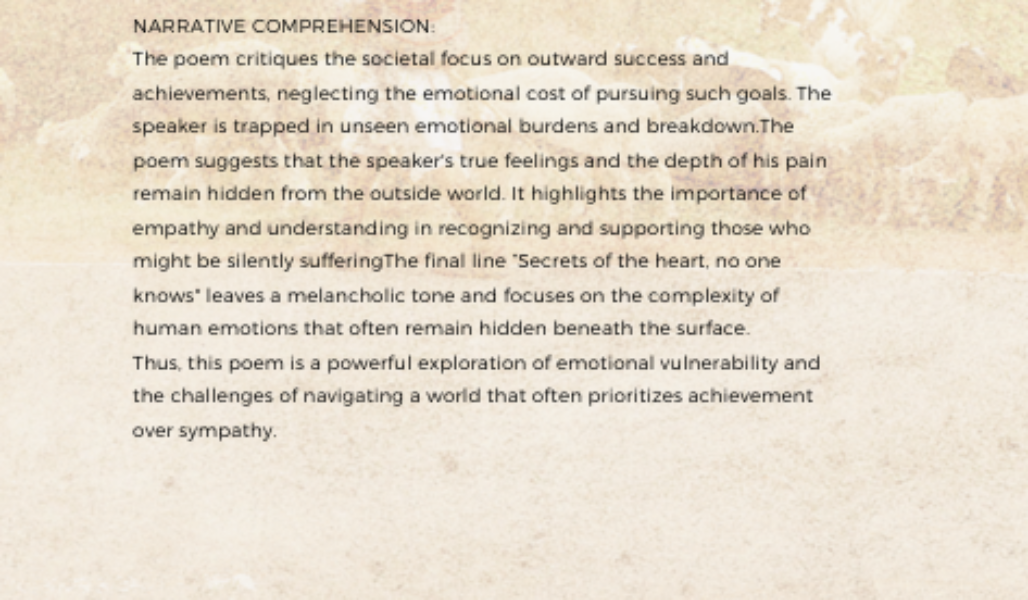
Fundamentally, the poem revolves around the intangible burden of emotional anguish and isolation by the speaker. While society concerns itself with the tangible aspects of success, the inner battle by the speaker passes unnoticed, making the importance of empathy and sympathy more important than ever. Using the repetition of the question, "What have you made?", Illam accuses society of shallowness of concern with successes while laying bare the toll on mental health. This core message encourages readers to see past external success and to recognize the richness of human emotion that lies below the surface.

